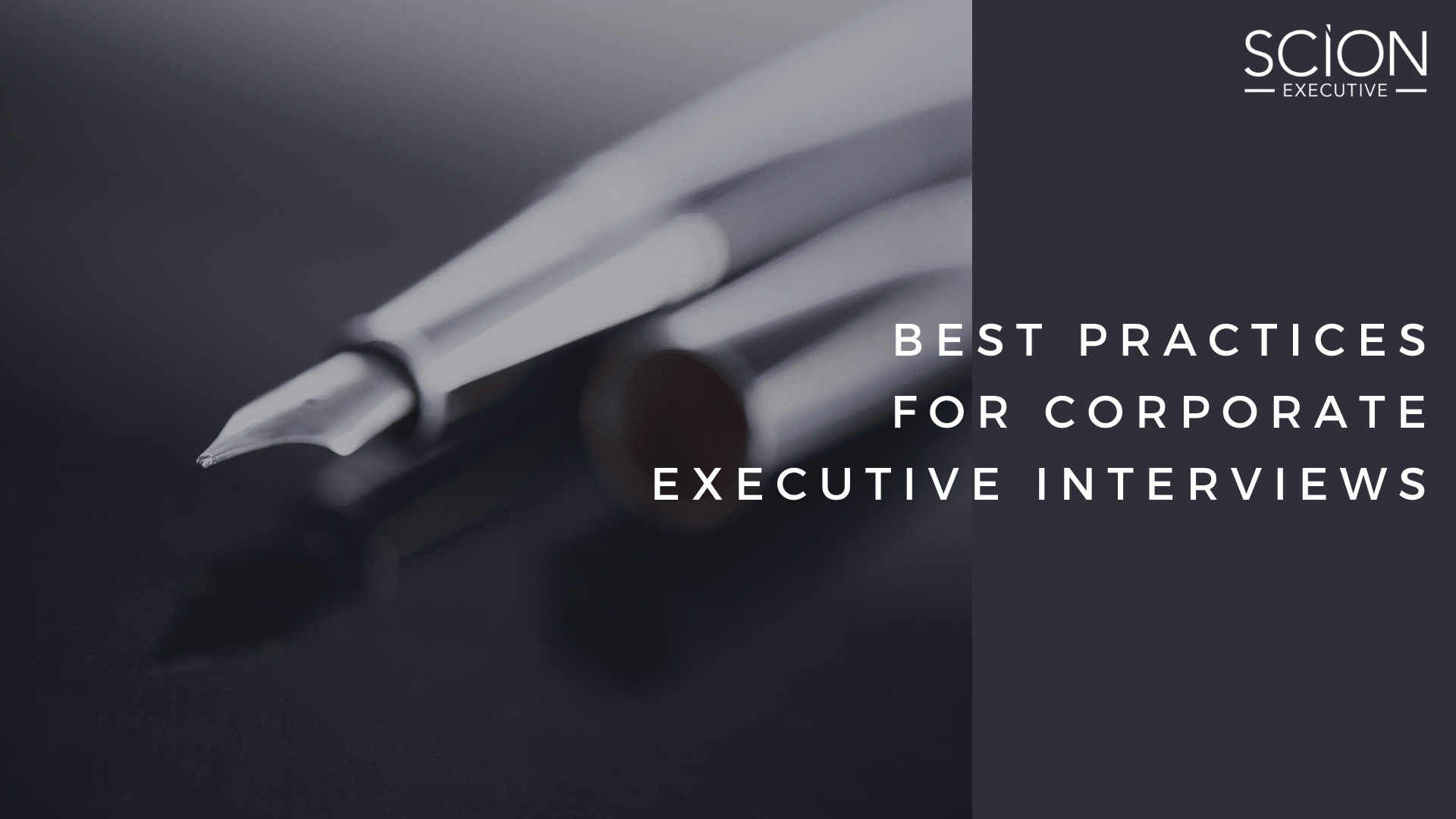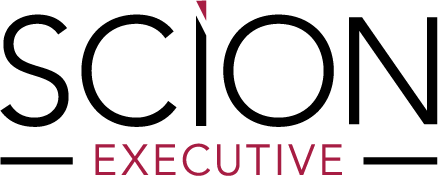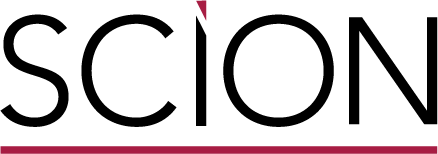
28 Feb Best Practices for Your Corporate Executive Interview
The interview process for corporate executives can be uniquely intimidating. While the executive-level interview offers an exciting opportunity to lead an organization and influence the industry, it is also a high-stakes arena that requires careful preparation and research. In this article, we’ll show you how to make the most of this critical opportunity with key strategies aimed at enhancing your success.
Prior to the Interview
Thoroughly Research the Company and Current Market
Before you meet with your prospective employer, you’ll want to gain deep insight into the company’s history and current operations. You can familiarize yourself with its mission and values, its products and services, and its unique selling points through various sources. Explore the company’s website, social media, blogs, press releases, and any other media to educate yourself about its origins, mission statement, areas of expertise, and most recent news, taking note of any recent changes in leadership or strategy.
In addition to your company research, you will benefit from understanding the company’s position within the current market. Research current market news, economic trends, and relevant business topics in your field to ensure you can speak confidently about the industry.
When it comes to research, being overprepared will set the odds in your favor. Don’t be afraid to dive deep into the workings of the company! Make a note of any information you can’t find through internet sleuthing, as these items can make great candidate questions during the interview (more on that later).
Why it matters: Executive candidates are expected to have an in-depth knowledge of the organization for which they are interviewing. Performing your due diligence illustrates your serious intent and prepares you to answer interview questions like “What do you know about our company?” and “Why do you want to work here?”
Establish a 30,000-Foot View of the Company
Once you have researched the company comprehensively, step back to consider the big picture: How does everything fit together inside and outside of the organization?
Some questions you can ask yourself as you develop your high-level perspective include the following:
How is the company structured (its departments, products, services, etc.)? How does it bring its products or services to market?
How does the company incorporate its external clients, customers, and/or partners?
How does the company operate internally? How are tasks and projects handed off from person to person?
What are the causes and effects of doing or not doing something?
Why it matters: Executive candidates are expected to be knowledgeable of their company’s “blueprint.” Walking into an interview with working knowledge of the organization will convey that you are a leader who makes informed decisions about its future direction and areas for improvement.
Familiarize Yourself with Your Interviewers
Researching the backgrounds and achievements of the hiring committee is another great way to highlight your genuine interest in a leadership opportunity. If you know who will be interviewing you, you can check the company’s website and LinkedIn for information about your interviewers, such as their backgrounds, education, career paths, and interests. If you cannot determine the individuals who will be present at the interview, review the company’s LinkedIn page to review the profiles of those who may be present.
Why it matters: Familiarizing yourself with the hiring managers or committee enables you to learn more about your potential colleagues, identify a few talking points to break the ice, and build rapport during the interview.
Reread the Job Description
Reviewing the job description multiple times will help you to identify the specific skills your potential employer is looking for. As you read through the list of responsibilities and requirements, identify examples from your current role or former positions that align with these.
Why it matters: Identifying the overlap between the job description and your experiences will set you up for success.
Prepare and Rehearse Your Answers
As with any interview, it is always prudent to prepare answers to common and not-so-common interview questions. You should be prepared to answer questions related to your experience, education, skillset, and any unique qualities you possess that make you an ideal candidate.
We recommend reviewing samples of common executive interview questions and writing down your answers—with specific, predetermined examples—in advance of the interview. Think about how to best discuss your past experiences and accomplishments as they relate to the role you’re interviewing for and practice your responses aloud.
Why it matters: This preparation will boost your confidence as well as assist you in speaking clearly and concisely throughout the interview—even if a difficult question is asked.
Generate Your Own Questions for the Hiring Committee
Asking questions of your own during an executive interview is a fantastic way to demonstrate your interest in and knowledge of the company. It also gives you the opportunity to evaluate whether the company can satisfy your work requirements.
As you generate your list of questions, create a multi-part line of questioning (1a, 1b, etc.) that can collect a full suite of information. This will convey to the hiring committee that you are a well-informed executive that dives deep into research before making a decision. It is also useful to prepare for the possible responses you might receive to these questions. With what questions will you follow up after receiving a “Yes,” “No,” “Maybe,” or an alternative answer? Generating a flow for the possible directions the conversation may go will ensure you are prepared for any answer your interviewer may throw your way.
Why it matters: Creating thoughtful, multi-part questions based on your research and requirements better positions you to speak articulately when you answer and ask questions. This preparation will prevent you from asking questions you could have otherwise found the answer to on your own.
Inform Your References
Keep all references informed of your interview schedule so they are not caught unprepared. Consider sending them your most up-to-date resume so they have the same interview materials to reference as your potential employer.
Why it matters: Apprising your references of your interview schedule will assist them when they are contacted to make a recommendation. Help them help you!
The Day of the Interview
Dress the Part
Whether you are attending an in-person or virtual interview, it’s important to be appropriately dressed for the role you are seeking. Dress in a manner that demonstrates your professionalism, such as business formal attire.
Why it matters: First impressions are often lasting, and putting effort into how you present yourself can go a long way in building a good impression.
Respond Truthfully and Positively
While we all want to portray ourselves at our best, it is important to respond truthfully and honestly to interview questions. Be genuine while illustrating your expertise, but do not bend the truth.
In addition to responding truthfully, it is also essential to frame all answers in a positive light. When discussing troubling, challenging, or difficult workplace scenarios, focus on framing them positively. What lessons did you learn from it? What did you do as a result? Why was it beneficial for you to experience that? What was the positive outcome from that (the experience, what it taught you, how you applied that lesson, how you reacted to it, etc.)?
Why it matters: Executive candidates are expected to display and practice integrity, and answering honestly is one way to do just that. Framing answers positively will demonstrate your ability to see the good in a difficult situation, as well as show your expertise during challenging times.
Center Your Answers Around the Company’s Future, Not Your Past
During an executive interview, it is essential to focus the majority of your discussion on the company’s future rather than your past. Career and leadership coach, trainer, blogger, and speaker Andrew LaCivita recommends a 90/10 ratio of future to past, and he explains why: “When you speak about your past and you start talking about exactly how you were doing things, the interviewer is in evaluation mode of you. When you start talking about their future, you’re shifting the discussion so that they are … imagining what it would be like to have you leading an arm of their company.”
To keep the focus on the company’s future, ensure that everything you discuss is within the context of the organization. How will you influence the organization’s future? What would you do to change it? How would you approach affecting change?
Why it matters: Focusing on the company’s future will demonstrate your working knowledge of the past, the expertise it has offered you, and what it would be like to have you as an employee in their company.
Use Metrics to Highlight Your Impact
When discussing your achievements, utilize metrics to support your responses. The key here is to focus on the impact you made and the benefits you achieved: How did you benefit the company internally? How did you positively impact its clients, customers, or partners externally? Details such as how you did it or how many direct reports you oversee are far less important in this context.
Why it matters: Focusing on how much you positively impacted a company or organization makes a stronger case for your candidacy rather than focusing on how many direct reports you oversee.
Order Your Stories Mindfully
When answering a question that requires storytelling about your past or the company’s future, sequencing is essential. Starting at the highest (macro) level and working your way down is the ideal strategy, opines Andrew LaCivita, who shared, “You always need to start at the highest level. You need to talk about the macro viewpoints and then work your way down. You, as an executive, should never reach the bottom … [but] get stopped about two-thirds of the way through.”
Start at the macro level: What were the goals? What was the strategy? What were you tasked with doing?
From there, you can speak about the benefits: What was the impact? What did you achieve?
If the conversation goes into the nitty-gritty of how things were done (somewhere you don’t want to be), you can shift the discussion to the company’s future: How would you apply that to what the company is striving to achieve presently?
Why it matters: Proper story sequencing (evaluation, strategy, and implementation) communicates to the hiring committee that you’re looking in the right places first rather than making assumptions about what the solution is.
Thank the Hiring Committee
Sending thank-you notes (or emails) is an important part of any executive interview. Not only is it a polite and courteous gesture, but it also shows your enthusiasm about the opportunity and your appreciation for the interviewers’ time.
It is best practice to send thank-you notes within 24 hours of the interview. Your note should include information about the interviewers you met with, the date of the interview, and the position you’re pursuing. You’ll also want to briefly restate your qualifications and mention details from your interview discussion that may jog the hiring manager’s memory of your interactions. This is also the ideal place to add any information you may have forgotten to say or include during the interview.
Why it matters: Sending thank-you notes promptly after an interview keeps your candidacy at the forefront of the hiring manager’s mind. It also enables you to add supplemental information that you may have forgotten to add during the interview, further boosting your case!
Thank Your References
Once you have sent your thank-you notes to the hiring committee, it’s time to thank your references for singing your praises. You can express your gratitude for their time and provide any updates on your job search via a thoughtful thank-you card or email.
Why it matters: Thanking your references underlines your appreciation for their recommendation and maintains your professional connections, enabling you to set up future references or recommendations as needed.
Find Your Dream Leadership Role with Scion Executive Search!
As an innovator in executive search and recruitment, Scion Executive Search aims to be an outstanding additional resource in your job search. There are many compelling reasons to apply with our search firm: For selected candidates of interest, we can help you stand out in front of decision-makers, best convey your skills to our employer clients, and find a true match for your background and interests. We’d love to review your qualifications and past experiences. Please start the dialogue and apply with us! We’ll be sure to reach out if we feel you could be a great fit for some of the incredible teams we work with.
About the Author
Jennifer Warren, Technical Writer (she/her/hers)
Jennifer Warren is an enthusiastic and meticulous technical writer at Scion Executive Search (SES). Committed to excellence and constant growth, Jennifer draws on her strong editorial and organizational skills to expedite executive searches for businesses and organizations. Those who work with Jennifer praise her for her initiative, strong language skills, transparent communication, and enthusiasm to support her clients and colleagues.
Jennifer has spent most of her career in the publishing industry. Before joining SES, she worked at a crafts book publisher for seven years, first as a production editor, preparing manuscripts for print, and then as an associate editor, curating content for new publications. Jennifer has also worked in the nonprofit sector as a grant writer, preparing and submitting applications for program funding. She graduated Summa Cum Laude from California State University East Bay with a Bachelor of Arts in English.


